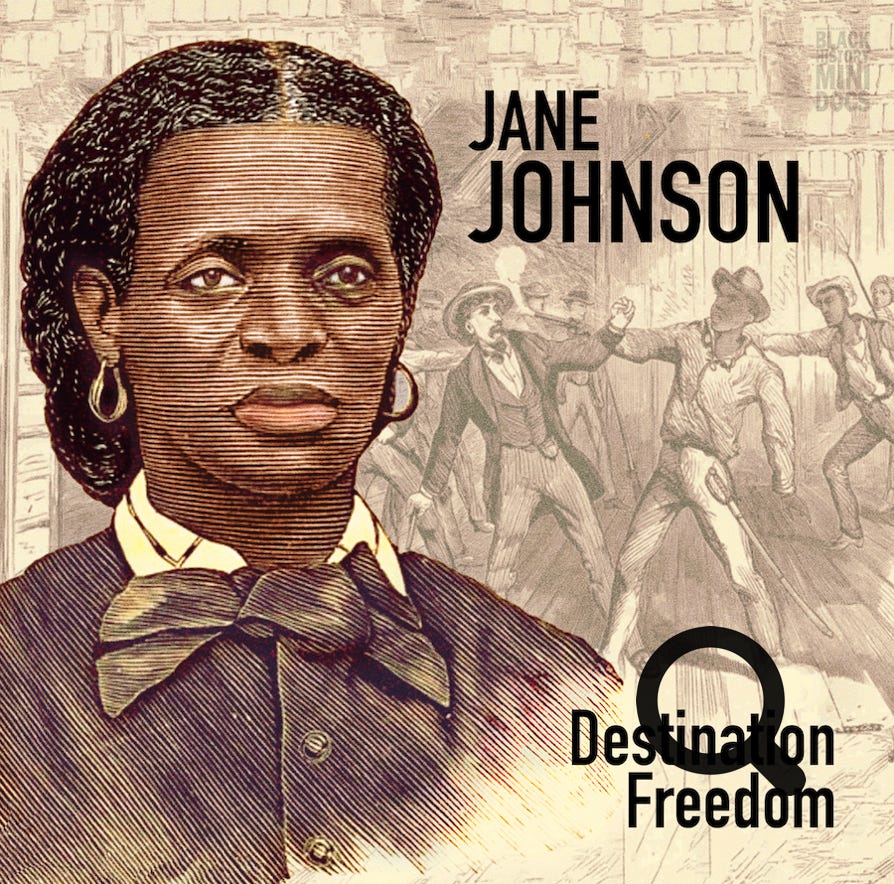
DESTIINATION FREEDOM
Jane Johnson (1814 – August 2, 1872) was an black enslaved woman who gained freedom on July 18, 1855 with her two young sons while in Philadelphia with her slavemaster and his family.
Johnson’s Slavemaster, John Hill Wheeler, had been appointed U. S. Minister to Nicaragua, and he and his family and servants were en route from Washington, D.C. to New York City to board a ship to South America. Her slavemaster had sold Johnson's eldest son, and she was determined that would not be the fate of her younger two sons. Through a locked door, she asked a black deckhand for help. He contacted a Black abolitionist William Still and Still contacted, his friend Passmore Williamson, a white abolitionists of the Pennsylvania Anti-Slavery Society and its Vigilance Committee.
The two men raced to the docks as Wheeler, his family and Johnson and her sons were boarding the steamboat. Williamson educated both Johnson and Wheeler that Pennsylvania law did not recognize the property rights of slaveholders, and she was free to leave Wheeler if she chose. As she and her two sons walked away with Still, five black deckhands helped restrain Wheeler, who tried to stop Johnson and her sons from leaving.
Pennsylvania had long been a free state and held that slaveholders gave up their property right to enslaved people if they brought them voluntarily to the state. This resulted in precedent-setting legal cases in 19th-century Pennsylvania, as a federal judge applied the Fugitive Slave Act of 1850 in a controversial way.
Still and the black deckhands were all jailed and the judge sentenced the white abolitionist Williamson, to 90 days for contempt of court for failing to produce Johnson and her sons under a writ of habeas corpus, or tell their location. The jailing attracted even wider publicity, and widespread discussion of issues of state and federal laws related to slavery.
Johnson would eventually returned to Philadelphia from New York a month later in August of 1855, and testified in the trial of the Black abolitionist, William Still and five dockworkers, who were charged by her enslaver John Hill Wheeler accusing the men of assault while assisting in her escape. She testified at length about having planned to gain freedom in the North, and said she chose of her own free will to leave with Still, and would never go back to slavery.
She helped win acquittal for Still, Williamson, three deckhands, and reduced sentences for two others. State and local officials protected her after testimony, and she and her sons soon moved to Boston, where they settled. She married again there and her son Isaiah Johnson served in the United States Colored Troops during the American Civil War.
Copyright Black History Mini Docs Inc. 2026 All Rights Reserved.















